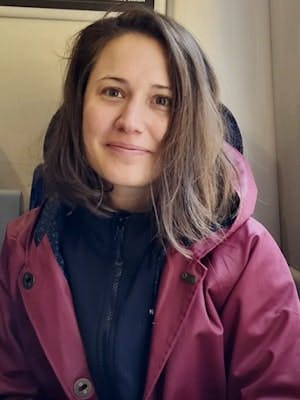
Champion, Giulia
Dr. @ University of Southampton
Bio
Dr Giulia Champion is a Research Fellow (Anniversary Fellowship) at the University of Southampton. Her project investigates different communities’ and stakeholders’ engagement with and representations of the seabed and deep sea, particularly in the context of (underwater) cultural heritage, legal language and science communication. It interrogates how these may influence marine governance and/or policy, with a particular focus on the case of the current development of the mining code by the International Seabed Authority based in Kingston, Jamaica. The project particularly considers the context of Latin American and Caribbean coastal communities and philosophical and cultural works emerging from the region. In 2022, she was a Green Transition Fellow at the University of Stavanger, Norway. She recently co-edited several collections and journal issues including “Intersections of Activism and Academia” with Bulletin for Latin American Research, “Animal Futurity” with Green Letters and “From Antropofagia to Global Lusophone Studies” with Portuguese Studies. Her work is being published in The Routledge Handbook of Ecofeminism and Literature, Contemporary French and Francophone Studies and Gothic Studies (2022) and The Journal of Energy History (2023).
Geographical location : United Kingdom
Research Area and Interest : communities’ and stakeholders’ engagement with and representations of the seabed and deep sea, particularly in the context of (underwater) cultural heritage, legal language and science communication
Social Media
Panel(s)
- Summary:
Presentation(s)
- Summary: Issues of sovereignty have always been crucial to former colonies and nation states in the Caribbean, not only legally, but economically, environmentally and culturally. These issues are complicated in the case of countries such as Puerto Rico, with its status as “unincorporated territory” of the United States, and the French “overseas departments” of Martinique and Guadeloupe. For these islands, their continued imprisonment in uneven relations with western countries means that issues of sovereignty are still widely discussed. In a discussion on Martinique's situation, Édouard Glissant notes that reconquering historical sense permits one to fight against this status of “successful colonisation” (Le discours antillais 273). These discussions are crucial in the context of land-based sovereignty and the resistance to extractive industries, which have damaged the islands in these regions in the centuries since plantation agriculture was first imposed. But how are these issues tackled when we move to the ocean? This paper proposes considering how Caribbean cultural productions establish ecological belonging beyond the land and in relation to the seabed, and how these concerns are entangled with those of sovereignty in the context of the current drafting of the mining code by the International Seabed Authority. This will be done by investigating, comparatively, the contexts of Puerto Rico and Guadeloupe through two case studies: Puerto Rican poet Mara Pastor’s work, in particular the poem “Poeta Nacional” (2018); and Guadeloupean sociologist and artist Nèfta Poetry/Stéphanie Melyon-Reinette’s video performance “Crying Wata Mami, Wata” (2019). (241 words)
